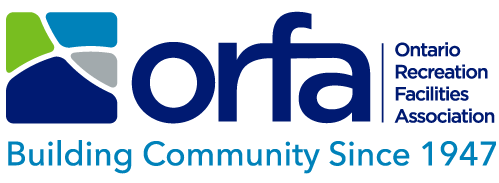- ORFA Home
- Events
- Course Descriptions
- Aquatic Facility Operations
Aquatic Facility Operations
The ORFA Aquatic Facility Operations course reflects the diversity of today’s Ontario’s public water recreation infrastructure. Through extensive member evaluation and feedback, the ORFA has shifted the learning focus from traditional Class A & B swimming pool operational responsibilities towards the different types of recreational aquatic facilities that includes the newly classified Class C pools. This advanced aquatic training course is considered industry leading as it takes practitioners who have obtained a Certified Pool Operator (CPO) credential, or other similar introductory aquatic training course, with an advanced study of aquatic facility operations. The ORFA has developed an enhanced curriculum specific to meet the learning needs of Ontario aquatic professionals. The educational approach includes an opportunity for professional aquatic operational staff to enhance their aquatic training and workplace experience while allowing recreation staff who are responsible for non-traditional water operations to attend and learn of their responsibilities, and how to effectively operate and maintain the equipment and infrastructure.
This course is a required educational component of ORFA’s Certified Aquatic Technician (CAT) professional designation. Positioned as an equivalent to ORFA’s highly respected Certified Ice Technician designation, the CAT credential is positioned to be in high demand by employers. Participants will be provided with a self-directed guide titled Passport Toward Competency. The guide will list recommended workplace-specific, as well as educational activities, to assist the participants in achieving aquatic facility operations competency, as best determined by their employer.
Topics include:
- Indoor and outdoor Class A & C pool regulatory compliance and operational best practices
- Aquatic mechanical room equipment maintenance best practices
- A review of advancements in water disinfection and chemistry
- Waterslide, saunas, steam rooms etc. maintenance and upkeep
- Pool chemical safety and management
- Indoor pool air quality
- Maintaining aquatic sensing equipment
- Indoor and outdoor aquatic PPE
- Outdoor pool operational best practices
- Working alone safely in an aquatic environment
- Workplace injuries and reporting compliance
- Completing efficient log book entries
- Aquatic housekeeping risks, hazards and best practices
- Risk reduction and avoidance strategies
- Emergency preparedness and management
This course is worth 21 professional development credits towards recertification of any ORFA professional designation.
Please Note: According to the Ministry of Health and Long Term Care – Regulation 565, operators of public pools and spas must be trained in the safe operation of the facility. The requirement in Reg. 565 (Public Pools) for operator training is new for operators of public pools. There is no specific training course identified at this time, however the regulation specifies that the operator must be trained in public pool and public spa operation and maintenance, filtration systems, water chemistry and all relevant safety and emergency procedures. There are existing training courses and resources available through many local public health units and industry providers which may be used to meet this requirement. Through the Recreational Water Protocol, public health units are required to ensure training materials are available and to promote recreational water facility training to owners and operators. As a guide, courses should contain information on the following topics, which are found in the Recreational Water Protocol:
|
Upcoming events
|
